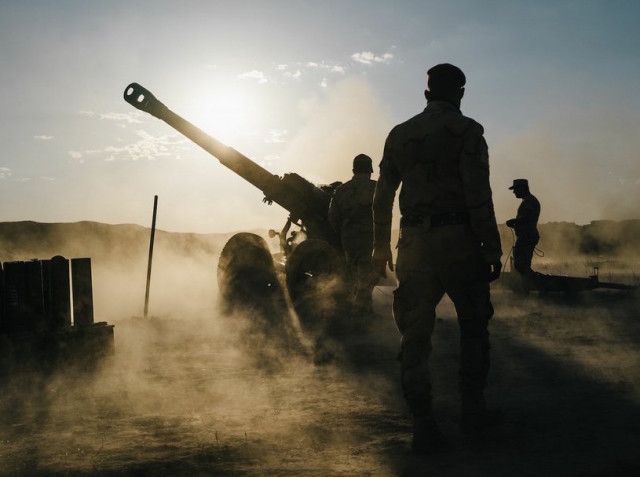
The U.S. Navy SEAL who died Tuesday while assisting Kurdish fighters in Northern Iraq was identified by the Pentagon on Wednesday. Officials said that Charlie Keating, 31, died after coming under Islamic State (IS) fire near the city of Irbil.
Keating had been part of small group of advisors assisting Peshmerga militia near Tal Asqof when IS fighters broke through the frontlines. The group had used IEDs and “remotely-guided car bombs” to help spearhead its advance. A Kurdish spokesman said Keating was shot dead by an IS sniper during the ensuing battle.
Keating was the third U.S. service member to be killed in combat operations since the U.S.-led coalition campaign to “degrade and destroy” IS began in 2014. “It is a combat death, of course, and a very sad loss,” U.S. Defence Secretary Ashton Carter told reporters while on a visit to Germany. In late March, another U.S. soldier, Staff Sgt. Louis F. Cardin, was also killed after IS fighters launched a rocket attack on a base in the northern Iraqi town of Makhmur.
The rising death toll of U.S. troops from combat in Iraq and Syria contrast with assertions made by the Obama administration. The White House has long promised there would be no “boots on the ground,” with military deployments restricted to “advising and assisting” U.S. allies on the ground. These functions, however, take place on a moving battlefield where the Americans are inevitably near the front line and, occasionally, on the line. Against this backdrop, the administration has also steadily increased troop levels, with the more than 5,500 U.S. service members now deployed to Iraq and Syria. Late last month President Obama approved the deployment 250 soldiers to assist missions in Syria. In the wake of Tuesday’s tragedy, military leaders warn of more casualties as troops embedded on the frontline continue the fight against IS.

